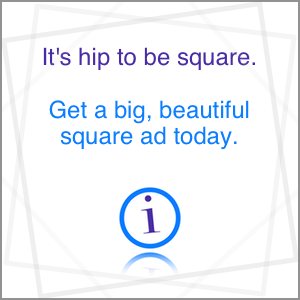President Trump seems to be presenting a unique opportunity for citizen journalists. Yes, I’m digging up that dusty term to remind you that you have the power of the pen.
The unique opportunity appears to be that he plans to bypass traditional media and go direct to the people via Twitter and YouTube.
When he announced his first 100 day plan, it came as an upload to YouTube, not a press conference. Professional reporters were forced to write stories about an online video.
That’s the opportunity. You have the same access to Trump as they do at the moment. You can get his video and tweet feeds, and you can “cover” the Trump administration.
You know as much or more than most reporters standing outside Trump Tower. You also have a view from outside the bubble of NY and DC.
Do we have any takers? One or two of you that will be following this anyway could do a great service by keeping others informed. It’s a small thing, not hard to do, that would make a difference.
It’s also an answer to “but what can I do?” about a Trump presidency.
A tiny regular effort will add up over time into something that could probably be assembled into a book, too.
I know at least one and probably many of you reading this will be typing furiously and feeding Mark Zuckerberg’s empire with Trump thoughts for the next four years. You could also break out of the Walmart-of-the-internet and do something positive and local for your neighbors.
I’m looking forward to someone starting the Trump Files here.




Is This Really That New?
I was thinking about Trump’s idea of going straight to YouTube on presidential statements. Now we usually have presidential statements disseminated through network television and a live feed. Trump’s innovation just rolls it out to YouTube where anyone who wants to can pick it up. It doesn’t seem that different from when Obama walks down the long narrow hall to the podium — it’s just distributed differently.
Or am I missing something here?
Outside the bubble?
Really?! The breakdown of Brattleboro’s votes in the election this month suggests that Brattleboro and the Upper West Side of Manhattan are in lockstep.
Otherwise this post’s points are well-taken, but if you live in this town there’s certainly a bubble and asserting it ain’t so is outright delusional.
Media bubble
Different bubble.
I’m talking about media, and the inside the beltway reporting that is privileged with special access and special rules. That media bubble doesn’t see most of the country, including Brattleboro. Those reporters are given access in return for being toadies, and are cut off if they misbehave. Recall Bush banishing Helen Thomas from her seat, for example, for asking hard questions about his administration.
In that world, the former rules were that the president’s team would give special tips and stories to media they liked, and the media would write it up. Rules of the game meant getting White House press credentials, sitting in the proper seat, attending staged news conferences, and allowed to ask questions if the press secretary allows it. If one was “difficult” one wouldn’t get called on, and would be cut off entirely.
With Trump, all the press is “difficult” and cut off. He’s bypassing them and that media bubble.
New game, new rules
Reminds me of what has been happening in residential real estate. Realtor® once were the gatekeepers of information. Through our Multiple Listing Service (MLS) Realtors® had a virtual monopoly on information about which homes and land parcels were offered for sale. The real-world choice available to sellers was which agent to list with, and for buyers it was which agent to work with.
Now, the internet has made it more practical for home sellers to offer their property as for-sale-by-owners, and Realtor.com and Zillow gives buyers access to information which, previously, was only available by getting access to MLS through a Realtor®. The notion that a real estate agent’s value is primarily to help you find the right home always obscured the value of expert service and advice that a good professional provides. But now the idea that an agent can succeed simply by being the conduit of listing information is totally obsolete.
I think there is a parallel for the press. It is no longer enough simply to be a conduit for news: The emergence of alternative channels of information has broken the news media’s monopoly and given the public choices which we did not have when there were three television networks and two news services.
I do not think this makes the Fourth Estate obsolete. I do think that, to succeed, the press must change their focus and offer us something we need and which is not so available elsewhere. Real, investigative journalism with trustworthy standards is the only viable future for the Fourth Estate.
I think that the popularity of The Commons illustrates the point.